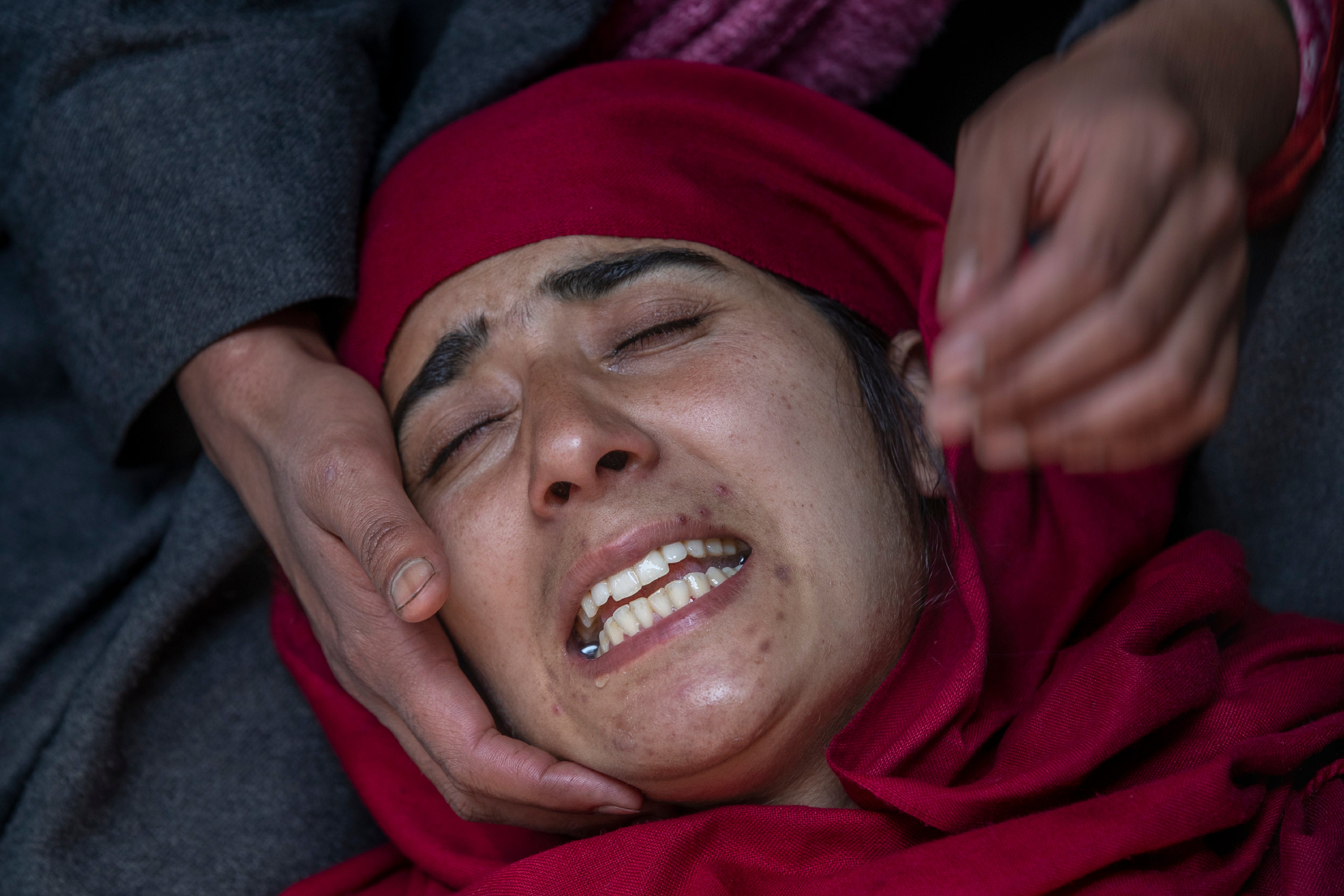UN rights experts concerned over India's changes in Kashmir
U.N. human rights experts are urging India to ensure that the rights of people in Kashmir are safeguarded after New Delhi stripped the disputed region’s semi-autonomous status and imposed a slew of administrative changes through new laws

Your support helps us to tell the story
From reproductive rights to climate change to Big Tech, The Independent is on the ground when the story is developing. Whether it's investigating the financials of Elon Musk's pro-Trump PAC or producing our latest documentary, 'The A Word', which shines a light on the American women fighting for reproductive rights, we know how important it is to parse out the facts from the messaging.
At such a critical moment in US history, we need reporters on the ground. Your donation allows us to keep sending journalists to speak to both sides of the story.
The Independent is trusted by Americans across the entire political spectrum. And unlike many other quality news outlets, we choose not to lock Americans out of our reporting and analysis with paywalls. We believe quality journalism should be available to everyone, paid for by those who can afford it.
Your support makes all the difference.U.N. human rights experts have urged India to ensure that the rights of people in Kashmir are safeguarded after New Delhi stripped the disputed region’s semi-autonomous status and imposed a slew of administrative changes through new laws.
Two experts for the Office of the U.N. High Commissioner for Human Rights said in a statement that the changes “could curtail the previous level of political participation of Muslims and other minorities” and expressed concerns about demographic changes in the region.
The statement late Thursday came as diplomats from more than 20 countries stationed in India’s capital concluded a two-day visit to the region.
Indian External Affairs Ministry spokesman Anurag Srivastava deplored the experts' statement and said they had sent the government a questionnaire on Feb. 10 and “did not even wait for our response.”
“Instead, they chose to release their inaccurate assumptions to the media,” he said, adding that it “has also been deliberately timed to coincide with the visit” of foreign diplomats.
Srivastava said the statement “disregards the fact" that Kashmir "is an integral and inalienable part of India” and that the decision to remove its semi-autonomy was made by India's Parliament. He also called concerns over demographic changes “baseless and unfounded.”
“We expect the special rapporteurs to develop a better understanding of the issues under their consideration before jumping to hasty conclusions and issuing press statements,” he said.
In August 2019 amid a harsh crackdown, Prime Minister Narendra Modi’s Hindu nationalist-led government stripped Kashmir of its statehood, scrapped its separate constitution and removed inherited protections on land and jobs. It divided and downgraded the region to a federally governed territory.
Since then, many new laws have been enacted, including a new domicile law, which critics say is the beginning of a colonialization by Hindu Indian settlers aimed at engineering a demographic change in the region.
Fernand de Varennes, the special rapporteur on minority issues, and Ahmed Shaheed, the special rapporteur on freedom of religion or belief, said after the changes, the region’s people “have lost power to legislate or amend laws” to protect their rights as minorities.
“These legislative changes may have the potential to pave the way for people from outside the former state of Jammu and Kashmir to settle in the region, alter the demographics of the region and undermine the minorities’ ability to exercise effectively their human rights,” the experts said.
“The number of successful applicants for domicile certificates that appear to be from outside Jammu and Kashmir raises concerns that demographic change on a linguistic, religious and ethnic basis is already underway,” they said.
The experts are in contact with the Indian government, their statement said.
Muslim-majority Kashmir is divided between India and Pakistan but claimed by both in its entirety. Rebels in the region have been fighting against Indian rule since 1989.
Before the 2019 change, Indian-controlled Kashmir was a state with special provisions in the Indian Constitution that granted its people special rights.
In anticipation of a backlash against the removal of those rights, Indian authorities sent extra troops into the already highly militarized region and launched a harsh security clampdown that cut off phone and internet access, shuttered schools and left hundreds of thousands without jobs. Many of the restrictions have since been eased, but India’s security presence in the region remains high.
Outside access to the region remains limited, with no foreign journalists allowed except ones who are taken on government-guided trips.
Many Muslim Kashmiris support the rebel goal that the territory be united either under Pakistani rule or as an independent country. India has labeled the rebel movement terrorism. Tens of thousands of civilians, rebels and government forces have been killed in the conflict.